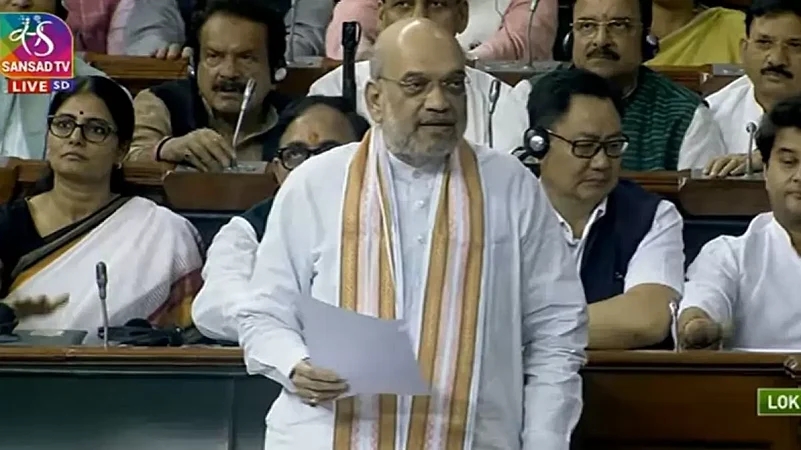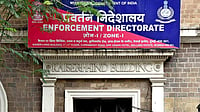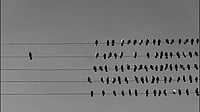With all the hue and cry in the monsoon session of the seventeenth Lok Sabha, the central government tabled three significant Bills. These Bills aim to replace existing laws, Penal Code, Criminal Procedure, and Evidence Act with the Bhartiya Sakshya, Nagarik Suraksha, and Nyaya Samita. Bharatiya Nyaya Samita will replace the Indian Penal Code of 1860.
While tabling the bill, Home Minister Amit Shah vehemently stated that the Bill is aimed at better justice orientation for Indians and to vacate the criminal law of colonial mindset. In his statement in Lok Sabha, the Home Minister also said that the new Bill, Bharatiya Nyaya Samita, will repeal sedition (Section 124A, IPC). In the first reading of the Bill, there is no mention of the word sedition as it was in Indian Penal Code. This comes after the Supreme Court kept Section 124A in abeyance after the government agreed to re-examine the law.
However upon a closer look, it is clear that sedition is not particularly removed as an offense, but it has been reworked under section 150 of Bharatiya Nyaya Samita. Section 150 is under chapter "acts endangering sovereignty, unity, and integrity of India" and is read as, “Whoever, purposely or knowingly by words, either spoken or written, or by signs, or by visible representation, or by electronic communication or by use of financial means, or otherwise, excites or attempts to excite, secession or armed rebellion or subversive activities, or encourages feelings of separatist activities or endangers sovereignty or unity and integrity of India; or indulges in or commits any such act shall be punished with imprisonment for life or imprisonment that may extend to seven years, and shall also be liable to a fine.”
Even though the words "disaffection towards the Government established by law in India" have been removed from the old Section 124A of the IPC, the new provision, inserted as Section 150 of the Bill, is more specific than the old one and directly targets secessionism, separatism, and a call for armed rebellion – without using the words "contempt" or "hatred" against the Government of India (as Section 124A does). It leaves plenty of room for interpretation by not including the test of incitement to violence in the proposed provision or connecting the act to public order.
The proposed clause 150 tightens the statute of sedition under a new nomenclature. The insertion of "by use of financial means" causes uncertainty, especially as the proposed clause notes do not explain – for that or anything else in the new legislation. There is likewise no definition of "subversive" for this provision. The effort appears to be to broaden the present sedition legislation, but without the protections that court rulings have provided thus far.
The Bill in the current text has the phrase “encourages feelings of separatist activities.” This expression has a broad meaning since the current government has been accused of silencing its critics by blaming them as anti-national or engaging against the state. This expression loosely equals offenses under the Unlawful Activities (Prevention) Act. This expression in the Bill encompasses a wide range of political discourse and literature, even if it does not result in violence against the state.
Surprisingly, the Bill includes a new offense of "terrorist act" that does not appear in the IPC. The Unlawful Activities Prevention Act (UAPA) defines "terrorist act" in significantly narrower terms, indicating that such an offense would be committed when India's integrity and sovereignty are threatened. However, clause 111 of the Bill broadens the scope to include any act "to disturb public order" as a terrorist act if it causes "damage or destruction of property or disruption of any supplies or services essential to the life of the community, destruction of a Government or public facility, public place, or private property."
Moreover, the Home Ministry has accepted the 22nd Law Commission’s suggestion that the minimum sentence for the offense be increased from three years to seven years in prison. Section 150 of the Bill states that the punishment is a minimum of seven years and a maximum of life punishment. Section 150 has been inserted in place of sedition with border meanings and stricter punishments.
When the government in the Lok Sabha says that sedition has been removed from the laws, it is a mere gimmick to play with words as sedition in its natural form has been maintained in the new Bill. Only the word 'sedition' has been removed and put up in a new way and form, which comes out as more stringent and draconian.
(Kumar Kartikeya is a legal researcher based out of Delhi.)





















